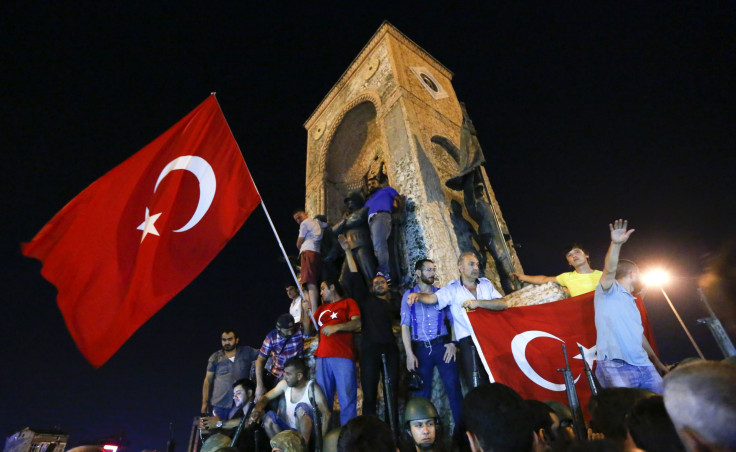What Is A Coup D’Etat? 5 Things Happening In Turkey Right Now

Turkish Prime Minister Binali Yildirim broke the news Friday that there was a coup attempt by the Turkish military against the sitting government, the U.K.’s Telegraph reported Friday. President Recep Tayyip Erdogan had a FaceTime session to address the nation, but it’s unclear where he was when the session was broadcast. He told people to protest. It’s not immediately clear who was in charge of the country, the New York Times reported.
Before we get into what’s happening on the ground in Turkey, let’s talk about the meaning of a coup d’etat. Coup derives from the medieval Latin world “colpus,” which means blow. In politics, a coup is a sudden (and illegal) takeover of a government. The word is pronounced "cooh." The "p" at the end of the word is silent.
Here are some quick facts about the chaos unfolding in Turkey Friday:
1. Yildirim is not calling it a coup. “Some people illegally undertook an illegal action outside of the chain of command,” he said in a television broadcast, according to the New York Times. “The government elected by the people remains in charge. This government will only go when the people say so.”
2. All the airports in Turkey have been closed.
3. All international agreements are still valid. “We hope that all of our good relationships with all countries will continue,” a statement from the Turkish military read.
4. The Turkey military claimed they are in control. “Turkish Armed Forces have completely taken over the administration of the country to reinstate constitutional order, human rights and freedoms, the rule of law and general security that was damaged,” a statement said.
5. Low flying jets and gunfire were heard near the capital. Hostages were reportedly taken.
Follow me on Twitter @mariamzzarella
© Copyright IBTimes 2025. All rights reserved.






















